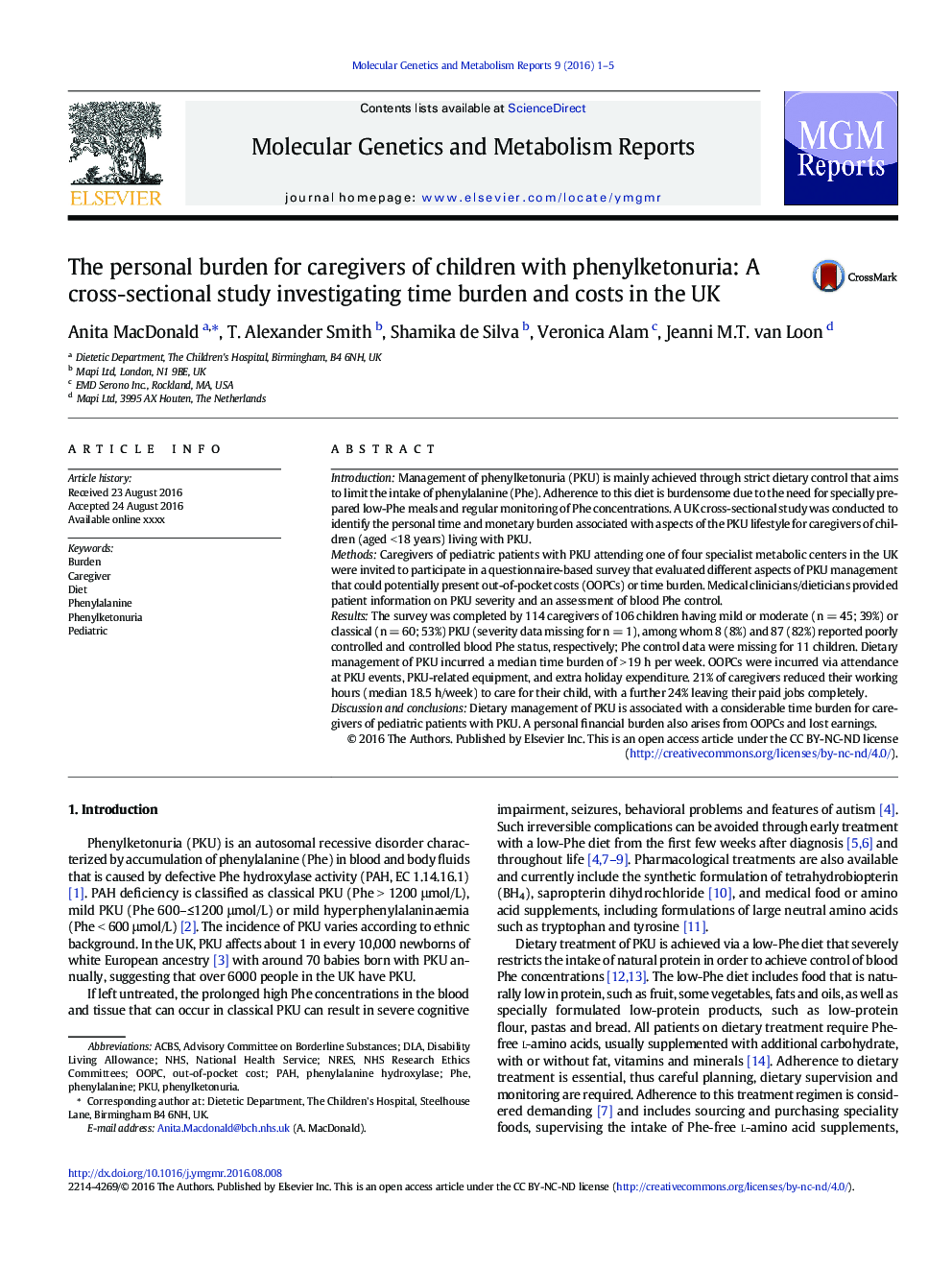| Article ID | Journal | Published Year | Pages | File Type |
|---|---|---|---|---|
| 2058795 | Molecular Genetics and Metabolism Reports | 2016 | 5 Pages |
IntroductionManagement of phenylketonuria (PKU) is mainly achieved through strict dietary control that aims to limit the intake of phenylalanine (Phe). Adherence to this diet is burdensome due to the need for specially prepared low-Phe meals and regular monitoring of Phe concentrations. A UK cross-sectional study was conducted to identify the personal time and monetary burden associated with aspects of the PKU lifestyle for caregivers of children (aged < 18 years) living with PKU.MethodsCaregivers of pediatric patients with PKU attending one of four specialist metabolic centers in the UK were invited to participate in a questionnaire-based survey that evaluated different aspects of PKU management that could potentially present out-of-pocket costs (OOPCs) or time burden. Medical clinicians/dieticians provided patient information on PKU severity and an assessment of blood Phe control.ResultsThe survey was completed by 114 caregivers of 106 children having mild or moderate (n = 45; 39%) or classical (n = 60; 53%) PKU (severity data missing for n = 1), among whom 8 (8%) and 87 (82%) reported poorly controlled and controlled blood Phe status, respectively; Phe control data were missing for 11 children. Dietary management of PKU incurred a median time burden of > 19 h per week. OOPCs were incurred via attendance at PKU events, PKU-related equipment, and extra holiday expenditure. 21% of caregivers reduced their working hours (median 18.5 h/week) to care for their child, with a further 24% leaving their paid jobs completely.Discussion and conclusionsDietary management of PKU is associated with a considerable time burden for caregivers of pediatric patients with PKU. A personal financial burden also arises from OOPCs and lost earnings.
